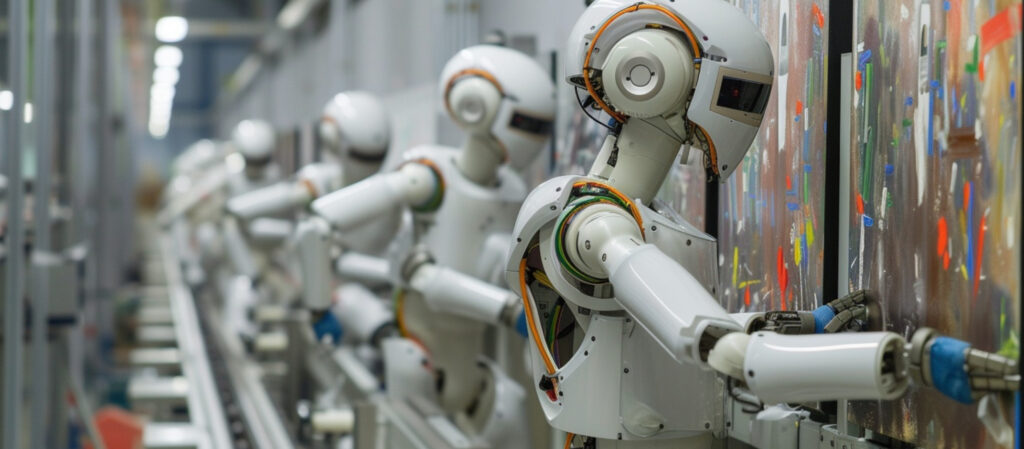In a rapidly evolving technological landscape, the rise of artificial intelligence (AI) has sparked debates about its potential to automate various industries. However, despite AI’s advancements, there are fundamental aspects of craftsmanship that cannot be replicated by machines. In this blog post, we delve into why AI won’t replace carpentry jobs and the unique qualities that make human craftsmanship indispensable in the fabrication and carpentry industry.
The Art of Carpentry Jobs: More Than Just Speed and Precision
In the age of AI, machines excel in tasks that demand speed and precision. However, the art of carpentry encompasses much more than mere efficiency. Carpenters undergo years of training, honing their skills and expertise in working with diverse materials. From wood to metal, each material presents unique challenges and requires specialized knowledge. Unlike AI, which operates based on algorithms and data, carpenters possess an intuitive understanding of their craft, allowing them to navigate complexities and deliver exceptional results.
Adaptability: A Key Component of Carpentry and Fabrication
One of the hallmarks of craftsmanship is adaptability—the ability to tackle challenges beyond repetitive tasks. While AI excels in performing routine functions, carpenters must constantly adapt to evolving project requirements and unexpected obstacles. Whether it’s adjusting designs on the fly or troubleshooting unforeseen issues, carpenters demonstrate their resourcefulness and problem-solving skills on a daily basis. This adaptability ensures that each project is tailored to meet the client’s unique needs, a feat that AI struggles to replicate.
Creativity: The Missing Element in AI
While AI can analyze vast amounts of data and identify patterns, it falls short when it comes to creativity. Carpentry is as much an art as it is a science, requiring imagination and ingenuity to bring designs to life. From custom furniture pieces to intricate architectural details, carpenters infuse their work with creativity, turning concepts into tangible realities. Unlike AI, which operates within predefined parameters, carpenters have the freedom to explore new ideas and push the boundaries of design, resulting in truly innovative creations.
Material Mastery: Beyond Data Analysis
While AI excels in analyzing data and optimizing processes, it lacks the tactile expertise required for working with materials. Carpenters possess an intimate understanding of various materials, from the grain of the wood to the properties of different metals. This mastery allows them to select the right materials for each project, ensuring durability, functionality, and aesthetic appeal. Whether it’s shaping wood with precision or welding metal with finesse, carpenters leverage their hands-on skills to achieve unparalleled results that go beyond the capabilities of AI.
Collaboration and Communication: Essential Skills in Carpentry
Craftsmanship extends beyond individual mastery to collaboration and communication—a cornerstone of carpentry. Carpenters work closely with clients, architects, and other stakeholders to translate visions into reality. Effective communication ensures that everyone is aligned on project goals, timelines, and expectations, fostering a collaborative environment conducive to success. While AI operates autonomously, carpenters thrive in teamwork, leveraging collective expertise to deliver exceptional outcomes.
Craftsmanship and Quality: Going Beyond Assembly
At the heart of craftsmanship lies a commitment to quality—a value that sets carpentry apart from automated processes. While AI can assemble components with precision, it lacks the discerning eye and attention to detail that define craftsmanship. Carpenters take pride in their work, meticulously crafting each piece to perfection and ensuring that every joint, seam, and finish meets the highest standards of quality. This dedication to excellence is evident in the finished product, elevating carpentry from a trade to an art form.
While AI continues to advance, the craftsmanship of carpenters and fabricators remains irreplaceable. Carpentry jobs require more than just speed and precision—they demand adaptability, creativity, material mastery, collaboration, and a commitment to quality. As technology evolves, it’s essential to preserve and celebrate the unique qualities that make human craftsmanship an indispensable force in the fabrication and carpentry industry.
Want to learn about 1220’s fabrication capabilities? Check out this page or feel free to contact us for more information.









